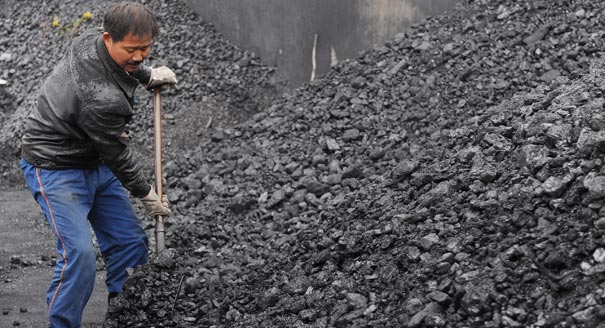Registration
You will receive an email confirming your registration.
China and the United States are the world’s two largest coal producing economies and account together for more than 60 percent of global coal consumption. Rising coal consumption and imports in China, especially, pose important energy, environmental, and climate challenges not only domestically, but also for the rest of the world.
Carnegie’s Energy and Climate Program hosted the U.S.-China Coal Value Chain Exchange Conference. A full-day exchange examined how to clean the Chinese coal value chain, the management of coal in the United States, barriers and opportunities to U.S.-China coal collaboration, and how to move the coal agenda forward.
How to Clean the Chinese Coal Value Chain
Despite its negative impacts on air, water, and land resources, coal currently is and will continue to be a key component in the Chinese energy composition.
Despite its negative impacts on air, water, and land resources, coal currently is and will continue to be a key component in the Chinese energy composition. Ma Linwei of the Tsinghua-BP Clean Energy Research and Education Center, Qiang Liu of the National Center for Climate Change Strategy and International Cooperation, Fuqiang Yang of the China Program, Natural Resources Defense Council, and Carnegie's Kevin Tu come together to discuss potential strategies to clean the Chinese coal value chain through demand management, technological innovation, and policy reform. Carnegie's Jessica Tuchman Mathews provided the introductory remarks.
Kevin Jianjun Tu
Senior Associate , Energy and Climate Program
Jessica Tuchman Mathews
Distinguished Fellow
Ma Linwei
Tsinghua University
Qiang Liu
Fuqiang Yang
The Management of Coal in the United States
With low natural gas prices marginalizing the once prominent place of coal in American energy sources, domestically produced coal in the United States may find future markets abroad.
With low natural gas prices marginalizing the once prominent place of coal in American energy sources, domestically produced coal in the United States may find future markets abroad. Carlos Fernandez Alvarez of the International Energy Agency, Scott Smouse of the U.S. Department of Energy, and Ailun Yang of the World Resources Institute sketched the current landscape of American coal production and debated its future in the international energy market. Carnegie's David Burwell moderated.
Carlos Fernandez Alvarez
David Burwell
Nonresident Senior Fellow, Energy and Climate Program
Scott Smouse
Ailun Yang
Luncheon Keynote Address
Former U.S. Ambassador J. Stapleton Roy provided an enlightened vision of the Chinese-American relationship and advocates the advancement of a strategically sustainable and mutually beneficial partnership for the 21st century.
Former U.S. Ambassador J. Stapleton Roy provided an enlightened vision of the Chinese-American relationship and advocates the advancement of a strategically sustainable and mutually beneficial partnership for the 21st century.
J. Stapleton Roy
David Burwell
Nonresident Senior Fellow, Energy and Climate Program
U.S.-China Collaboration on Coal: Barriers and Opportunities
As the United States reduces its coal consumption and China increases its own, opportunities for technologically and policy cooperation on this great transition abound.
As the United States reduces its coal consumption and China increases its own, opportunities for technologically and policy cooperation on this great transition abound. Casey Delhotal of the U.S. Department of Energy, Dadi Zhou of the Energy Research Institute at the Natural Resources Defense Council, Michael Reid of Duke Energy, Nan Zhou of the China Energy Group, Lawrence Berkeley National Laboratory, and Carnegie's Wang Tao discussed these opportunities and the barriers they face in successful development and implementation.
How to Move the Coal Agenda Forward
As both China and the United States move into new administrations, each leader is given an opportunity to move the coal agenda forward.
As both China and the United States move into new administrations, each leader is given an opportunity to move the coal agenda forward. Fuqiang Yang of the China Program at the Natural Resources Defense Council, Daniel Guttman of Johns Hopkins University, and Jennifer Turner of the Woodrow Wilson International Center for Scholars consider what legacies these administrations will leave and the role of civil society, the private sector, and others in the public sector will have on coal’s future.
Daniel Guttman
Fuqiang Yang
Jennifer Turner
